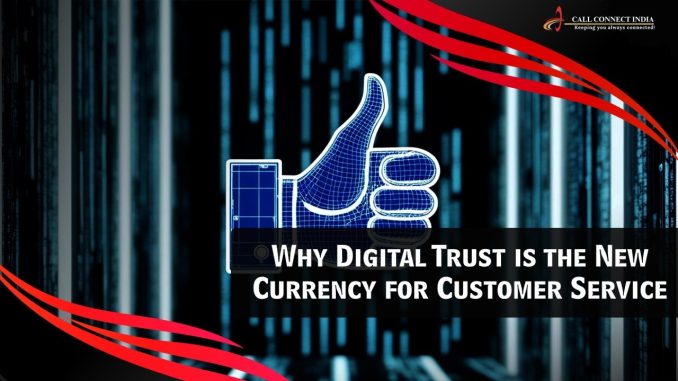
In an era defined by data, connectivity, and rapid digital transformation, trust has emerged as one of the most valuable assets a business can cultivate. Unlike traditional currencies, which are measured in units and backed by institutions, digital trust is intangible yet deeply influential. It shapes consumer behavior, drives loyalty, and determines the success of digital interactions. As businesses increasingly rely on digital platforms to engage with customers, partners, and employees, the ability to build and maintain trust online has become a strategic imperative. Digital trust is no longer a soft concept—it’s the new currency of the digital economy.
At its core, digital trust refers to the confidence users have in the integrity, security, and ethical behavior of digital systems and the organizations behind them. It’s the belief that personal data will be handled responsibly, that digital services will perform reliably, and that interactions will be transparent and fair. This trust is earned through consistent actions, clear communication, and a demonstrated commitment to privacy and security. In a world where breaches, misinformation, and opaque algorithms can erode confidence in seconds, maintaining digital trust requires vigilance and intentionality.
Consider the role of trust in e-commerce. When a customer visits an online store, they are making a series of judgments—about the legitimacy of the brand, the safety of the payment process, and the reliability of the delivery. If any of these elements feel uncertain, the transaction may never happen. Conversely, when a platform demonstrates credibility through secure checkout systems, clear return policies, and responsive customer service, trust is reinforced. That trust translates into repeat business, positive reviews, and word-of-mouth referrals. In this sense, digital trust functions as a multiplier, amplifying the impact of every interaction.
The same principle applies in enterprise settings. Organizations that handle sensitive data—whether in finance, healthcare, or education—must demonstrate that they can protect it. This goes beyond compliance with regulations; it involves cultivating a culture of accountability and transparency. When clients and partners believe that their information is safe and that systems are resilient, they are more likely to collaborate, invest, and innovate. Digital trust becomes the foundation for strategic relationships, enabling growth and agility in a competitive landscape.
Technology itself plays a dual role in this dynamic. On one hand, it enables trust through encryption, authentication, and real-time monitoring. On the other, it can undermine trust if not managed responsibly. Artificial intelligence, for example, offers powerful capabilities but also raises concerns about bias, surveillance, and decision-making transparency. Businesses that deploy AI must be prepared to explain how it works, what data it uses, and how outcomes are validated. This level of openness is essential to maintaining trust, especially as users become more informed and discerning.
Social media and digital communication platforms further complicate the trust equation. Misinformation, deepfakes, and manipulated content have made it harder for users to distinguish fact from fiction. In response, companies are investing in content moderation, fact-checking, and algorithmic transparency. These efforts are not just about protecting users—they’re about preserving the credibility of the platform itself. When users feel that a digital space is trustworthy, they are more likely to engage, share, and contribute. That engagement drives value, making trust a core component of the business model.
Leadership also plays a critical role in building digital trust. Executives must set the tone by prioritizing ethical decision-making, investing in cybersecurity, and communicating openly during crises. When breaches or failures occur—as they inevitably will—the response matters more than the incident itself. Companies that acknowledge mistakes, take corrective action, and keep stakeholders informed can often emerge stronger. This resilience is rooted in trust, which acts as a buffer against reputational damage and operational disruption.
The rise of decentralized technologies such as blockchain introduces new dimensions to digital trust. By design, blockchain systems offer transparency, immutability, and distributed control. These features can enhance trust in transactions, supply chains, and digital identities. However, they also require users to understand complex concepts and navigate unfamiliar interfaces. Businesses that can simplify these experiences while preserving the benefits of decentralization will be well-positioned to lead in the next wave of digital innovation.
Ultimately, digital trust is about relationships. It’s about how people feel when they interact with technology and the organizations behind it. It’s built through empathy, consistency, and a commitment to doing the right thing—even when no one is watching. For businesses, this means embedding trust into every layer of the digital experience, from product design to customer support to data governance. It means recognizing that in a world of endless choice, trust is what keeps users coming back.
As digital ecosystems become more complex and interconnected, the value of trust will only grow. It will influence not just consumer behavior but also regulatory frameworks, investment decisions, and competitive dynamics. Those who understand this shift and act accordingly will thrive. They will build brands that are not only profitable but also respected. And in doing so, they will prove that in the digital age, trust is not just a virtue—it’s currency.